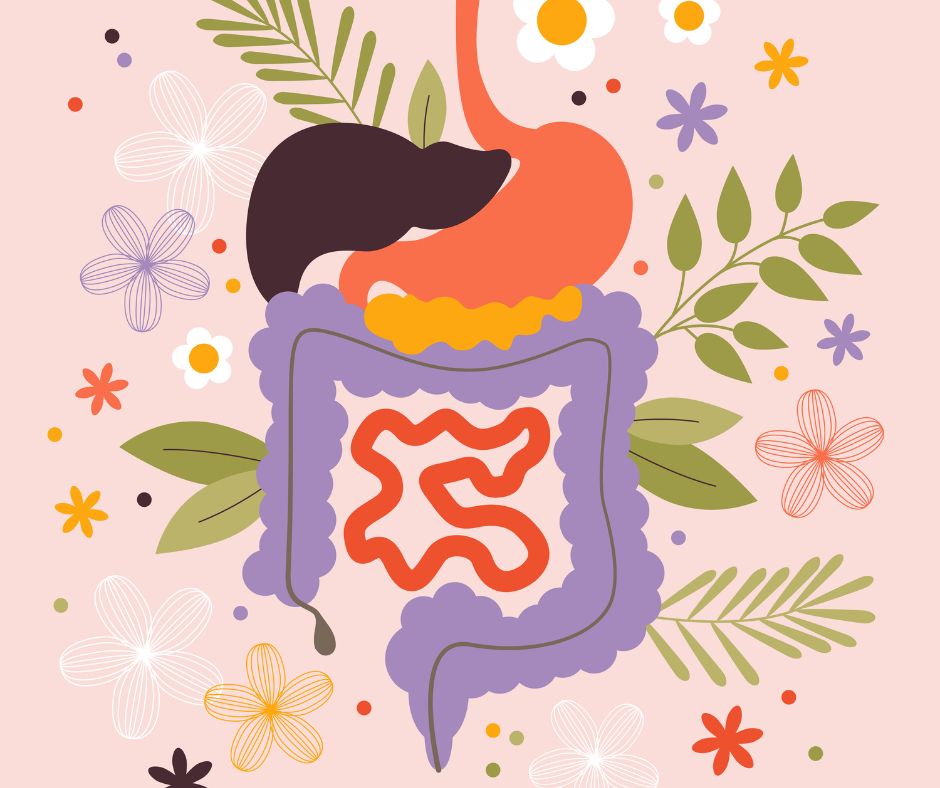Sadness and Digestion: How Your Gut Affects Your Emotions
Have you ever felt unexpectedly sad, low on energy, or emotionally flat, without a clear reason? Many people experience these “out-of-the-blue” moods and assume it’s just stress, hormones, or a rough day. But what if the real reason behind unexplained sadness is your digestion? Science now shows that your gut and brain are far more connected than we ever imagined, and digestive health can have a profound impact on your emotional well-being.
The Gut–Brain Connection
The gut is often called the “second brain” because it has its own nervous system, the enteric nervous system, which communicates constantly with your brain. This gut-brain connection happens through the vagus nerve, hormones, and neurotransmitters.
One of the most surprising discoveries is that about 80–90% of serotonin, the “feel-good” neurotransmitter linked to mood, happiness, and emotional balance—is actually produced in the gut, not the brain. If your digestion is out of balance, your serotonin production may be too. And when serotonin levels dip, you may feel sad, anxious, or emotionally off without any obvious cause.
The Role of Serotonin: More Than Just the “Happiness Chemical”
Most people know serotonin as the “feel-good neurotransmitter”, but its role goes far beyond mood regulation. Serotonin (5-hydroxytryptamine, or 5-HT) is a chemical messenger that helps your body balance emotions, digestion, and other vital functions.
1. Serotonin and Mood
- Emotional balance: Adequate serotonin levels are linked to feelings of happiness, calm, and stability. Low serotonin is often associated with depression, anxiety, and mood swings.
- Sleep regulation: Serotonin helps produce melatonin, the hormone that regulates sleep. Poor gut serotonin production may lead to insomnia or disrupted sleep.
- Stress response: Serotonin works with dopamine and norepinephrine to regulate how your body reacts to stress.
2. Serotonin and Digestion
Here’s what surprises most people: about 80–90% of serotonin is produced in the intestines. Enterochromaffin cells in the gut lining release serotonin to control:
- Gut motility – It signals your intestines to contract, moving food smoothly through your digestive tract.
- Nutrient absorption – Balanced serotonin helps regulate enzyme release and digestion efficiency.
- Gut sensations – That “butterflies in the stomach” feeling during stress is partly serotonin at work.
3. Serotonin and the Gut–Brain Axis
Serotonin acts as a messenger between the gut and the brain. If your gut is inflamed or imbalanced, serotonin signaling can get disrupted, leading to mood issues even when nothing external seems wrong. This explains why digestive disorders like IBS (Irritable Bowel Syndrome) often go hand-in-hand with anxiety or depression.
4. Beyond Mood and Digestion
Serotonin also influences:
- Appetite control – Helps regulate hunger and satiety signals.
- Blood clotting – Platelets store serotonin and release it to help with wound healing.
- Bone density – Abnormal serotonin signaling has been linked to bone health issues.
- Sexual function – Low serotonin can affect libido and satisfaction.
Signs Your Sadness Could Be Linked to Digestion
If you often feel sad for no reason, take a closer look at your digestive health. Common red flags include:
- Bloating or gas after meals
- Irregular bowel movements (constipation or diarrhea)
- Acid reflux or heartburn
- Food intolerances or sensitivities
- Low energy and brain fog
These issues might indicate that your gut microbiome—the community of trillions of bacteria in your digestive tract—is imbalanced. When harmful bacteria outnumber the good ones, it can trigger inflammation, reduce serotonin production, and affect your mood.
How Poor Digestion Impacts Mood
- Reduced serotonin production – If your gut lining is irritated or your microbiome is imbalanced, serotonin production can drop.
- Nutrient absorption issues – Poor digestion means you may not be absorbing enough vitamins and minerals (like B vitamins, magnesium, and zinc) that are crucial for mental health.
- Chronic inflammation – Gut inflammation releases stress signals that can affect your brain chemistry, contributing to depression-like symptoms.
- Stress feedback loop – Stress affects digestion, and poor digestion increases stress—a cycle that leaves you feeling emotionally drained.
Simple Steps to Support Your Gut and Boost Your Mood
The good news is that improving your digestion can naturally lift your mood. Here are some practical steps:
- Eat more fiber – Vegetables, fruits, and legumes feed beneficial gut bacteria.
- Include probiotics and fermented foods – Yogurt, kefir, sauerkraut, and kimchi add healthy bacteria to your gut.
- Stay hydrated – Water supports digestion and helps eliminate toxins.
- Manage stress – Deep breathing, yoga, or meditation calm the gut-brain axis.
- Get enough sleep – Rest is essential for both mental health and digestive balance.
- Limit processed foods and sugar – These disrupt the gut microbiome and worsen mood swings.
Sadness and digestion: When to Seek Help
If sadness without reason persists for weeks, or if digestive symptoms interfere with daily life, speak with a healthcare professional. They may recommend tests for gut health, food sensitivities, or nutrient deficiencies. Addressing underlying digestive issues can make a big difference in emotional resilience.
A final word
Feeling sad without reason doesn’t always mean something is “just in your head.” Your digestion may be playing a major role in how you feel day to day. By paying attention to gut health and supporting your microbiome, you’re not just improving digestion—you’re also nurturing your emotional well-being.
So next time you ask yourself, “Why am I feeling down for no reason?”, consider this: the answer might start in your gut.
We hope this information is useful for you. If you need advice or have any questions about our treatments, please contact us. You can find us in Mill Hill Broadway and Islington. We are always happy to help. If you like this blog, please share!
References:
https://www.ncbi.nlm.nih.gov/books/NBK545168/
https://www.apa.org/monitor/2012/09/gut-feeling



